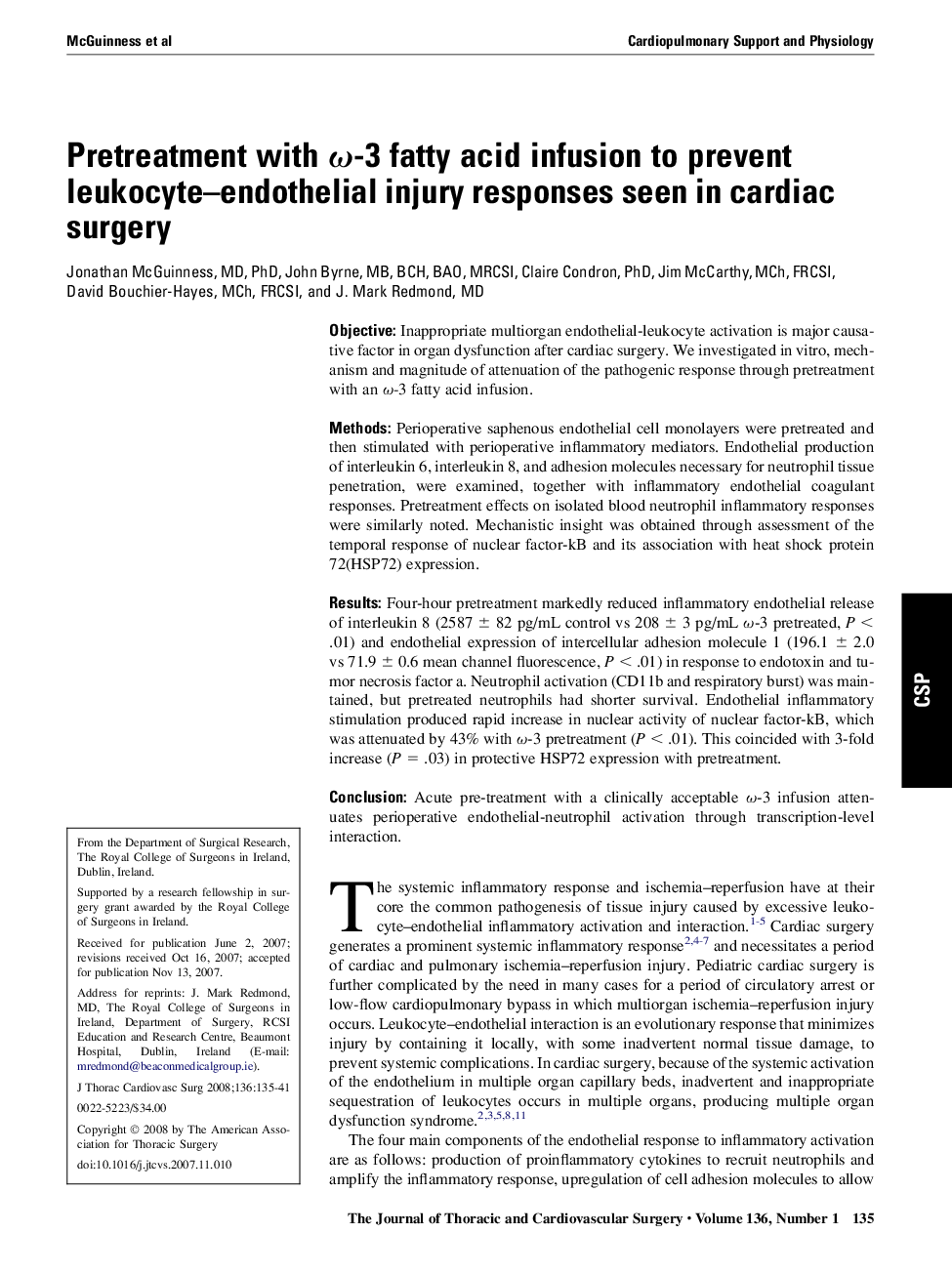| Article ID | Journal | Published Year | Pages | File Type |
|---|---|---|---|---|
| 2986173 | The Journal of Thoracic and Cardiovascular Surgery | 2008 | 7 Pages |
ObjectiveInappropriate multiorgan endothelial-leukocyte activation is major causative factor in organ dysfunction after cardiac surgery. We investigated in vitro, mechanism and magnitude of attenuation of the pathogenic response through pretreatment with an ω-3 fatty acid infusion.MethodsPerioperative saphenous endothelial cell monolayers were pretreated and then stimulated with perioperative inflammatory mediators. Endothelial production of interleukin 6, interleukin 8, and adhesion molecules necessary for neutrophil tissue penetration, were examined, together with inflammatory endothelial coagulant responses. Pretreatment effects on isolated blood neutrophil inflammatory responses were similarly noted. Mechanistic insight was obtained through assessment of the temporal response of nuclear factor-kB and its association with heat shock protein 72(HSP72) expression.ResultsFour-hour pretreatment markedly reduced inflammatory endothelial release of interleukin 8 (2587 ± 82 pg/mL control vs 208 ± 3 pg/mL ω-3 pretreated, P < .01) and endothelial expression of intercellular adhesion molecule 1 (196.1 ± 2.0 vs 71.9 ± 0.6 mean channel fluorescence, P < .01) in response to endotoxin and tumor necrosis factor a. Neutrophil activation (CD11b and respiratory burst) was maintained, but pretreated neutrophils had shorter survival. Endothelial inflammatory stimulation produced rapid increase in nuclear activity of nuclear factor-kB, which was attenuated by 43% with ω-3 pretreatment (P < .01). This coincided with 3-fold increase (P = .03) in protective HSP72 expression with pretreatment.ConclusionAcute pre-treatment with a clinically acceptable ω-3 infusion attenuates perioperative endothelial-neutrophil activation through transcription-level interaction.
